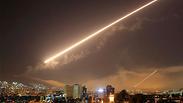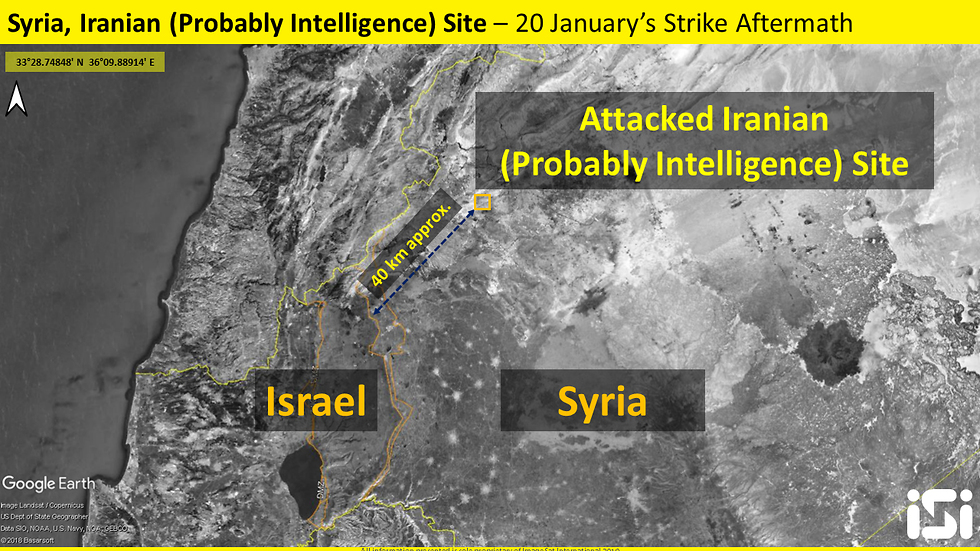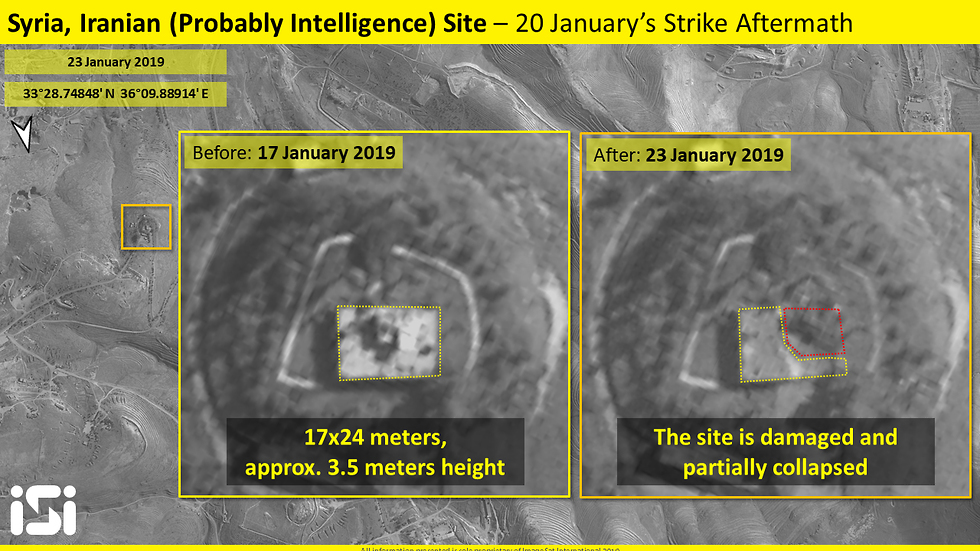
Russia's rebuke of Israel's Syria strikes wasn't mere lip service
Analysis: By making itself the sole superpower in the region, Moscow must create balance that keeps everyone happy; but the Israelis, the Syrians and the Iranians are all griping and fighting to advance their own interests.
The Syrians started the soft war when they filed a complaint against Israel with the United Nations Security Council and demanded that Israel stop violating their sovereignty by attacking targets in their territory. Of course, Syria's UN ambassador said not a single word about the Iranian military entrenchment in his country.
On Sunday and Monday, the Russian military headquarters in Syria settled for laconic statements of facts, with no condemnation or demands of Israel, and this must have angered Damascus. Russia prefers not to anger Assad, as it doesn't want him to withdraw his invitation to Moscow to keep air and naval bases along the eastern shore of the Mediterranean Sea, for the first time since the time of the czars.
Russia also wants to profit from the rehabilitation of Syria after the civil war, and it needs the goodwill of the regime in Damascus to reach a political agreement that would stabilize the situation in the country, following which the rehabilitation could begin in earnest.
For all of these reasons, the Russian Foreign Ministry released a statement through a lower rank, its spokesperson, in which it condemned Israeli operations and demanded that it ceases its attacks in Syria—just as the Assad regime demanded.
Except that the Russian Foreign Ministry's statement included an interesting sentence, calling on all sides to stop waging geo-political struggles on Syrian territory. This sentence, it appears, was not just meant for Israeli ears but also, and perhaps mostly, for the ears of the ayatollahs regime in Iran.
Behind this implied message to Tehran is rather credible information published by the Kuwaiti newspaper Al Jarida. The paper's reporter in Jerusalem has good sources, and the paper has had several decent scoops about the Iranian fight against Israel on Syrian soil. A story published on Wednesday morning, which was written by the paper's correspondents in Jerusalem and Tehran, said that Qasem Soleimani, the commander of the Revolutionary Guards' elite Quds Force, toured the Syrian Golan Heights about a week ago, some 45 kilometers from the Israeli border.
It's safe to assume Al Jarida's credible sources meant for this information to reach the Russians. Russian President Vladimir Putin did commit to Prime Minister Benjamin Netanyahu and to US President Donald Trump that he would keep the Iranians at least 80 kilometers away from the Syria-Israel border on the Golan Heights.
If Soleimani did visit that area on January 18, at such a close distance from the border with Israel, it would constitute a clear violation of the promises Moscow made to Jerusalem and Washington. It is quite possible that behind Al Jarida's credible sources were powers who sought to make it clear to the Russians that the Iranians, their so-called allies, don't care about the promises the Kremlin made. These sources wanted to show Moscow that Iran is provoking Israel, and therefore the Russians have no right to complain to the Jewish state about its attacks in Syria.
It's also quite possible that Soleimani's visit to the Golan was in order to prepare the missile his men fired at Israel earlier this week.
According to Al Jarida, Soleimani also met with the heads of the National Security Council in Tehran and told them Netanyahu is pushing for escalation on the Syrian front to get more votes in the upcoming Israeli elections. It's unclear whether the information about Soleimani's comments was accurate, but the very fact that he met with the heads of the Iranian National Security Council is interesting in and of itself.
It appears questions are being asked in Tehran about the entanglement in Syria, and this is a positive development from an Israeli standpoint. But more importantly, Israel is signaling to Moscow that it needs to keep its word, which was probably not very pleasant for the Russian Foreign Ministry to hear.
Israel should nevertheless take the Russian statement seriously. It's not just lip service the Kremlin is paying to Damascus, which lost several anti-aircraft batteries in the latest round of fighting. It should be taken as serious statement of Russian intent to limit the IAF's freedom of operations in Syria, which could limit the fight against Iranian entrenchment in the country. The situation at present is delicate, and Israel's Security Cabinet will have to thoroughly discuss future moves.
Life's not easy for the Russians. Everyone is constantly coming to them with complaints. The Syrians complain that Moscow isn't defending them from Israel's strikes; the Israelis complain that the Russians are not fulfilling their promise to curb the Iranians; and the Iranians claim the Russians don't sufficiently value their contribution to preserving the Assad regime.
This is what it's like now that the Russians have made themselves the dominant superpower in the Middle East, and particularly in the Syrian arena. The position of dominant superpower has its pluses, but also quite a few minuses.












